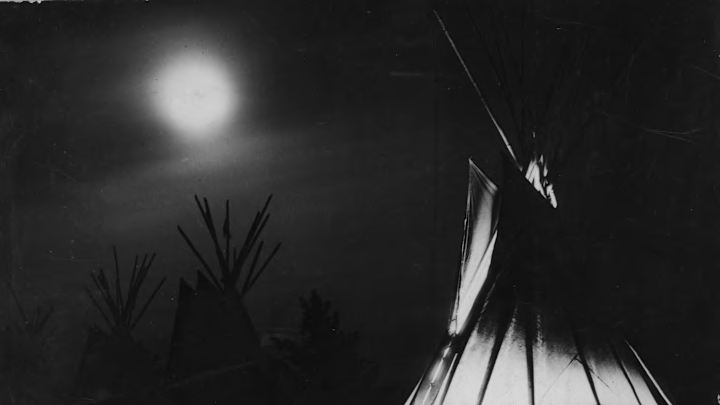Memes are practically a language unto themselves. Now considered cringeworthy, for most millennials, memes were the de rigueur form of communication in the early-to-mid 2000s. But what of the people who were being meme-d? Who were they? What did they think about the unsolicited use of their image? #skoden, a new documentary premiering at Hot Docs Toronto, examines the life and times of the man who became the most famous meme across Turtle Island, Pernell Bad Arm.
In the early 2000s, an image of an Indigenous man in a windbreaker posing for the camera with his fists up became an instant online sensation. But at first, fame did not arrive for the best of reasons. People online used the meme as a way to mock and stereotype Indigenous peoples, reinforcing white supremacist attitudes.
All that changed by the addition of one word—‘skoden’. The slang term, which is an abstraction of ‘let’s go then’, is popularly used among Indigenous people. By adding the word to the image of the man, the meme was essentially reclaimed by Indigenous internet users, making the man in the picture a pop culture icon.
But who was this man, and what was his story? Through a series of heart-wrenching interviews with Pernell Bad Arm’s community, #skoden tells the story of a generous man who was failed at every step by the world he was born into. Bad Arm lived and died in Lethbridge, Alberta, Canada. He was born in the Blood Reserve on traditional Blackfoot Territory. A proud Blackfoot, Bad Arm spent his life trying to reclaim the Indigenous way of life, and spoke Blackfoot even as the language was dying away.
For director Damien Eagle Bear, telling Bad Arm’s story was personal, in a way. Years before the meme that made Bad Arm’s image famous, Eagle Bear was working on a documentary about the houseless in Lethbridge, and his very first interview was with Bad Arm. The documentary itself remained unfinished, but Bad Arm’s generosity and wisdom continued to live with Eagle Bear. Having successfully directed a few short documentaries and web series since, Eagle Bear was equipped to uncover the life of Bad Arm in #skoden.
I will fully admit, I have never encountered the #skoden meme, but then again, I wasn’t anywhere near North America in the early-2000s. I decided not to research it and went into the #skoden documentary expecting to explore the impact of meme-ification. But this story is about so much more than the online world. Eagle Bear’s lasting interest in the houselessness issue in Lethbridge—and, let’s face it, everywhere in North America—drives the narrative of this documentary. Because the #skoden meme would not have existed had Bad Arm not been houseless and suffering from addiction.
#skoden explores the possible causes of both among Indigenous communities. Interviews with Mark Brave Rock, Bad Arm’s friend for many years, and Amber Jensen, Bad Arm’s case worker at the Lethbridge Shelter and Resource Center, unravel the difficult life that Bad Arm attempted to overcome. He came from a loving family but was forced into a residential school. The Indigenous children who survived the residential school system were left to deal with a great deal of trauma, many of them unable or unwilling to even voice their experiences.
But it wasn’t just the trauma of being torn away from their families and forcibly being stopped from using their native languages that led to a reliance on addictive substances. As Marvin Heavy Head Jr, a community activist and knowledge keeper, says in #skoden, people who had been through residential schools or the child welfare system were often left with a limited understanding of the world, not to mention a lack of guardianship and mentorship to help them navigate the world. As Jensen adds later in the documentary, millions of dollars were being thrown at Lethbridge to solve the homelessness crisis, but most of the initiatives were doomed to fail because they weren’t addressing the actual needs of the people.
Despite the unfortunate circumstances of Bad Arm’s life, #skoden refuses to wallow in misery. At every downward turn in Bad Arm’s story, director Eagle Bear pivots to a moment of joy and a happy memory, either from his family, his community, or the people who worked at the shelter. Even while talking about his sudden death, #skoden reinforces that Bad Arm died surrounded by people who loved him.
The houselessness crisis in North America is worse than it’s ever been, states the National Alliance to End Homelessness, and it’s a situation that is poised to get much worse due to the political climate in the region. #skoden is a stark reminder of the very real people that the world forgets because they don’t conform to society’s expectations, even as those people are immortalized by way of internet memes. Positive action needs to be taken to effect impactful change for the most vulnerable in our societies. Hopefully, that is the message that people in power will take from watching this documentary.
#skoden is currently screening at Hot Docs.
